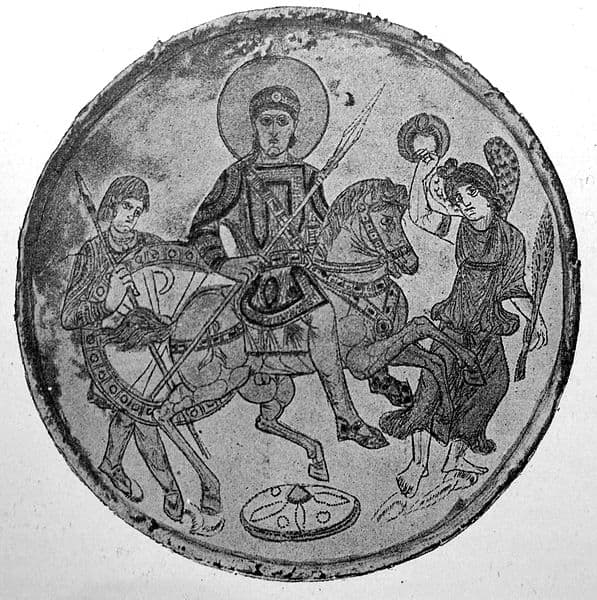
ADVERTISEMENT - CONTINUE READING BELOW
The Temple of Besa
The Roman world of the fourth century was in a state of flux. Although the empire had not yet officially split into east and west, power was being shared between the emperor and his deputy-now know as the Augustus and Caesar. In fights and intrigue was the order of the day and in the space of the fifty-eight years between the end of the reign of Constantine and the division of the empire, there were no less than seventeen emperors.
Religion was also changing. With the Edict of the Council of Milan in 313AD, Christianity now had lawful status. Christian officials such as Lactantius, tutor of Constantine’s son, quickly achieved positions of influence. At the same time, subtle changes began to seep into legislation. Aside from harsher, more biblical sounding punishments for certain offenses (deserters now lost a foot, and those who desecrated public buildings lost a hand), the fourth-century Codex Theodosianus contains no less that twelve new laws related to magic.
Seven of these laws made it clear that magic and divination were now inseparable- even if the divination in question had previously been part of legitimate religious activity. Sure enough, in 359AD, accusations of treason were made surrounding a temple to the god Besa in the small town of Abydum in Egypt. The temple had long been a place of oracular activity, where people would turn up in person or send their questions about the future in parchment letters. It was temple policy to retain these letters. However, someone now maliciously selected request that were open to interpretation and sent them to the Emperor Constantius II.
ADVERTISEMENT - CONTINUE READING BELOW
Constantius was already paranoid. The last years of his reign saw him beset with threats from every side-not least from his cousin Julian who the following year would replace him. Consequently, he was susceptible, or ‘softer than an earlobe” to any perceived threat of treason, no matter how obscure its source. So Constantius immediately sent his secretary of state, Paulus to Abydum. Paulus was a vicious man “skilled in the work of bloodshed”- and keen on it too. Constantius gave him free reign to deal with the matter surrounding the temple of Besa.
Paulus wasted no time. He did not limit himself to those in a position to benefit from a plot against the emperor but indiscriminately, rounding up anyone associate with the temple“noble and obscure alike”. Several local politicians were tortured on the basis they had enquiring after their career prospects. They were then simply exiled. However, others, such as a local philosopher called Demetrius were charged not with treason but simply offering sacrifice to Besa. Then people began to be arrested, charged and executed simply for wearing protective magic amulets. What had started as a search for treason ended up as a full-scale witch-hunt within a pagan community.
Just a decade later, people were on trial in Rome itself- to satisfy the ambitions of one man.

